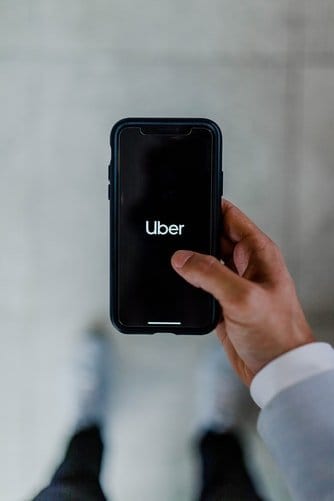
Today, mobile devices are seemingly pieces of technology that almost everyone has. With smart devices ready at hand, people can access a wealth of information with just a single tap of a finger. As a result, it has created a phenomenon wherein everyone has access to everything on mobile, furthering business goals.
Indeed, in an era wherein almost everyone is perpetually glued to the screens on their phones, businesses and marketers alike need to find ways to capitalize on the phenomenon. So, whether big or small, companies create and develop mobile applications in an endeavor to expand their business to unprecedented heights.
Why the business must invest in acquiring mobile app development services is a question that requires careful consideration. This is especially true today in quarantine and lockdown, wherein people stay at home, doing digital activities more than ever.
Indeed, the pandemic has taught modern businesses the prudence of adapting technology to boost business performance. As a result, digital companies, particularly those with mobile applications, see growth in their operation while some thrive more financially.
Pandemic-proofing the business is just one benefit; there are many other benefits that any company may realize by having a mobile application that will be discussed in detail below. Let’s define mobile application or app first.
Mobile application defined
Mobile application, or simply mobile app, refers to a software application or computer program designed to run on mobile devices such as smartphones, tablets, or smartwatches.
The early mobile applications intended to boost the users’ productivity until the public realized its greater use. Due to GPS capabilities, apps expanded into mobile gaming, production automation, order tracking, ticket purchase, and location-based services.
Nowadays, millions of mobile apps are available in the App Store (for iOS devices) and Google Play Store (for Android devices). Mobile apps could be free, freemium, or paid.
David Pogue, a technology columnist, popularized the word “app” in 2009. He claimed that smartphones must be called “app phones” instead of the basic keypad phones. The American Dialect Society awarded the word “app” as the Word of the Year in 2010.
Mobile apps can be native (only available either on Apple or Google Play Store), hybrid (available on both app stores), and web-based. A web-based mobile app can be used only when the user is connected to the Internet. Developers can code the app in HTML5, JavaScript, or CSS.
Importance of mobile apps
At a technological epoch where mobile users adopt new technology, businesses need to double up to look for fresh and new ways to market and offer their products and services. That said, if your company does not have a mobile app just yet, you are already losing to your competitors. Indeed, you are missing out on an opportunity for attracting leads and prospective customers as well as engaging with them.
The importance of mobile app development for business today cannot be overemphasized and stressed enough. Most users are looking to accomplish things virtually, so you need to step up your game. Sure, you may have attracted enough leads and potential buyers, but is it enough?
More often than not, it is not. If you wish to prod your leads and prospective customers to the finish line and purchase a product or avail a service from you, you need to engage with them and nurture that very same lead. This is where mobile apps come in.
If you understand the benefits of mobile apps, you will see how they play a pivotal role in your business goals. Likewise, your users understand the importance of mobile apps. They know that it is easy to access information about a company while simultaneously connecting to their favorite brands and staying up to date.
Mobile apps are for small businesses too
Considering the costs of acquiring mobile app development services, which can be anywhere from $5,000 to $50,000, the prevailing notion is that mobile app development is for multinational companies and corporations alone.
Not true.
While it is true that a mobile app investment is an expensive undertaking, small businesses must not look at the process as cost-prohibitive. Instead, these businesses need to realize that the app offers value, among other pros that far outweigh the cons.
It all boils down to balancing a working budget and a list of the features or functions you need. Furthermore, this also means managing your expectations regarding the application development process and how the mobile app would perform in the future.
Several factors affect the cost of mobile app development. All these help understand how costing works.
- The app development approach (native versus hybrid app) you decided to use will affect the final cost of building the app.
- There are no cost differences if you want to target either a native or hybrid app.
- The app development price increases if you’re going to target both platforms (iOS and Android).
- You can save money by targeting all the available platforms using one mobile app.
It would be best for small businesses to understand their target market to inform mobile app-related decisions. For example, if the majority of the clients are using Android devices, going to the native app development route is worth pursuing. Or, if there’s a 50/50 distribution, a hybrid app is for you.
It means having a clear understanding of your target users.

Managing expectations when availing mobile development app services
There are three misconceptions about mobile apps and how they can influence business operations.
1) The mobile app will succeed without proper market research.
It won’t.
Pre-planning is necessary. This should coincide with a mobile app needs analysis to determine your business is operationally and financially ready to commit to using an app.
Today’s best apps in the market are created to target and solve the pain points of the consumers or customers.
While at it, the app won’t succeed if you would ‘launch’ it. Real work starts after launching the app. You also have to promote and monitor its performance.
2) The mobile app will be the next Uber or Grab.
Again, it won’t be. Unless your app will serve the public through a mass-targeted service, and you have the capital to market the mobile app as such.
Of course, you expect the mobile app to perform as it should. However, big dreams need more extensive investments. For now, it is enough that the mobile application is servicing your business the way you intend it to be.
While at it, you can only be ambitious if you bring something new to the market and not merely duplicate other brands’ success. Know that the success of your mobile application lies in making it utilizable, so prioritize the features and functions, especially those that your competitors do not address or poorly implement.
3) The mobile app will lose value in three to five years.
First, you need to understand that mobile apps are intangible. It is easy to dismiss its value because all you see are screens. Yet, that’s now how apps should work. It is because the devil is in the details, in this case, in the development process.
This is why you need to start small with mobile app development and scale as you go. First, build an app with only the most basic features then, integrate new features and functions gradually or as the needs arise.
As long as you continue to work on your mobile app to maintain value-providing status, your target consumers will continue to use it. That’s the secret: robustness and scalability of the mobile app.
Business benefits of having a mobile app
Moving forward, below are why a mobile app is a necessary marketing tool for all businesses, regardless of its nature, size, and scope. Below are some of the reasons.
Benefit #1 – A mobile app makes it easier to promote your products and services.
You can nurture your leads and prospective customers with great offers and promotions, which you can do by building a mobile application. To do this, create an irresistible and compelling offer and notify your leads through the app. The idea is to reach out to a pool of existing customers and leads with your offers through timely notifications and in-app pop-ups.
In-app promos and deals, as well as complementary notifications, are unique features of a mobile app. As such, it is easier to launch new products and services and promote upgrades to old ones. You can also slowly build interest around new products, for instance, through teasers.
The premise is that you already have a steady community built around your brand, so promoting new launches would be easier and more cost-effective. Other promotional techniques may exhaust the marketing budget but not deliver the expected results, unlike a mobile app.
Reaching out to the right people at the right time is imperative, and you can do this with push notifications. Keep close attention to detail and do it in style. Studies have found that push notifications with emojis tend to be opened more than their counterparts without them.
Benefit #2 – A mobile app increases customer engagement levels.
It would be best if you think beyond having personal, face-to-face communication with your customers.
To have a high level of engagement with customers, you need to reach out to them first. That said, mobile apps afford plenty of benefits for businesses, one of them being an affordable reach. Back in the day, connecting to potential customers and leads was a rather exorbitantly priced marketing strategy.
Marketers used to plaster advertisements on newspapers and the like. Unfortunately, these come with an expiry date, unlike mobile apps. With mobile apps in the market, businesses can get closer to their prospective and current clients and give them an avenue to engage with your brand meaningfully.
Times are changing nowadays, and as a result, customers are looking to connect with businesses online. Take full advantage of this by creating a mobile app for your business that gives your customers a better point of contact. With an integrated point of contact in your mobile app, you can provide your customers with a robust mobile presence.
A mobile app gives your customers a voice, whether leaving feedback on a specific product or joining a poll.
In essence, all features of the mobile app, or activities happening on the app, are a vote of confidence. The more confident they are in using the app, the higher the engagement levels.
In theory, engagement means the willingness to pay for the product or service. A mobile app offers an opportunity to interact with the customers at different facets of the marketing campaign.
Unlock a mobile app’s full potential by customizing its features according to the target audience. In this regard, observe how your users interact with your mobile app, understand their preferences, and see how the user engagement shapes up. From there, leverage the customizations of your mobile app as your business will gradually improve and gain more users interacting through the app.
Benefit #3 – A mobile app allows customer feedback in real-time.
Your mobile app’s interface should aim to give them the best possible experience in testing. In this way, they can decide for themselves whether they wish to push through with purchasing your product or availing of your service. A majority of marketers do not see their mobile business apps as simply a means to increase revenue. Instead, they see it as a tool to improve customer service primarily.
As already mentioned above, your customers would always have something to say about your brand, products, services, and even employees—good or bad. A mobile app is the right platform to let all these activities take place.
Feedback may take the form of a complaint, review, or suggestion. All these are valuable to your operation because listening and acting on these will improve processes, products, and management.
This allows the brand to improve and divert the resources onto capitalizing on businesses that will bring more leads and profits.
Benefit #4 – A mobile app increases the return on investment.
This is perhaps the most benefit of having a mobile app—the higher returns on investment. Speaking of costs, the money needed to invest in marketing activities will be reduced significantly. The same is true for reducing overhead costs.
Given that it would take several months to recuperate the initial cost of developing the mobile app, the app itself allows selling at a faster rate. Exclusive and limited-time offers, for example, encourage people to buy straight from the app.
Faster turnover of inventories also has perks, allowing the business to offer newer products or services that the target market needs.
Benefit # 5 – A mobile app supports business analytics.
Actionable insights based on data analysis are paramount in improving the entire business operation in this digital day and age.
One of the best things about having a mobile app is creating reports right off the dashboard. In some instances, a third-party analytics tool can be integrated into the app for the faster collation of data.
You may track points of engagement, such as downloads and feedback, and analyze them quickly. With sufficient data on your hand, it would be easier to make the products and services more customer-oriented.
Benefit #6 – A mobile app gives more value to customers.
Businesses thrive in reciprocation. Give your target customers what they need, and they will support your business. This is a win-win situation that a mobile app can reinforce.
If you want your customers to engage as you would expect, you must provide them with a high level of value that they cannot find anywhere else. The perfect example of this is a loyalty program that you can also integrate with the mobile app.
If not the loyalty program, the app offers excellent customer service support. In case of questions or concerns about the product for sale, the customers will also get instant feedback. Responding to inquiries and resolving issues would be easier with a mobile app as well. This may come in handy when instructing the customer on properly using products or care for them.
Benefit #7 – A mobile app enhances brand visibility.
Brand awareness increases with the help of a mobile app. Think of it as a billboard only on a digital platform.
Other than that, you can always cross-promote the app online for broader reach and visibility. The best thing about this is that making it available on the app stores alone is an unprecedented way to broaden the said reach at no additional cost.
Since the mobile app is the future of social interaction, word-of-mouth marketing may also share in spreading the word about the brand or the app itself. This brings us to another reason why a mobile app is beneficial to any business.
Benefit #8 – A mobile app increases the customer base.
When you launch the app, initial subscribers are the first wave of customers to come your way in addition to your regular customers.

When building the customer base further, your customers may become your brand ambassadors as well. For instance, a positive experience using the mobile app and pushing for them to share their social media experience could mean additional mileage for you through referrals.
Speaking of social media, of course, it is another wave of subscribers who can eventually become your loyal customers when you plug the mobile app on specific social channels. For instance, synergy is amplified if you post updates about the newly launched mobile app on your business page. Again, it means helping the business reach a bigger audience, albeit digitally.
Overall, a mobile app makes your business stand out in the competition. In addition, it gives the impression that your brand is willing to adapt where necessary, including technologies that can make the life of the consumers easier. After all, businesses and consumers alike only want comfort and convenience.
In today’s competitive environment, people are using mobile devices to keep up with their favorite brands. So, in a way, it allows potential customers to access information quickly through the app. That said, if you do not have a mobile app for your business just yet, you are already falling behind your competitors.
You, too, can capitalize on the benefits of having a mobile app—no matter what your business may be. Consider this as a way to keep your business open to your customers—beyond the traditional working hours. That said, you can help reach your business its full potential by developing the right mobile app.
Aside from this, making yourself available round the clock will boost the business. This will be a competitive advantage that is sustainable in the long run. This is where you want to invest your financial resources—technological investments that will provide your business the leverage it needs with or without the pandemic.



